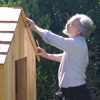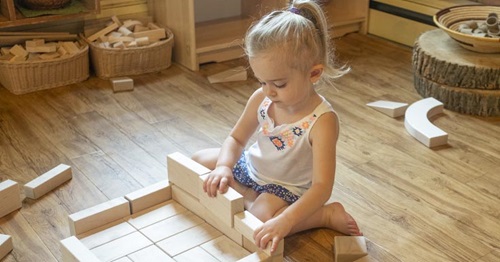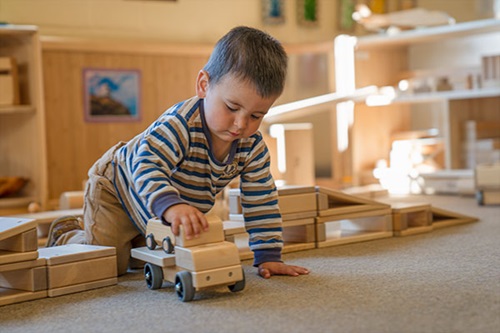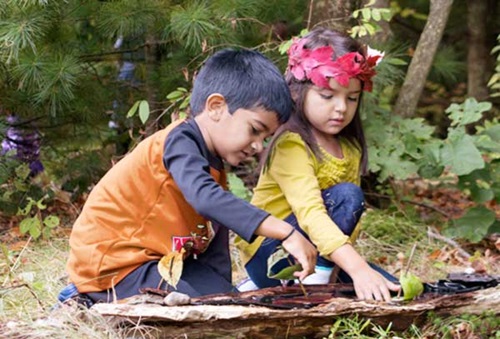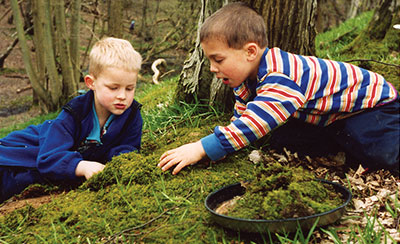Learning from Froebel’s Kindergarten
| April 2021At the beginning of all the early childhood classes I teach at the local community college, I review important early childhood theories. I believe students should be familiar with the foundation of our field. Most of the students have heard of many of these theorists – Piaget, Erikson, Vygotsky, Dewey and Bronfenbrenner. Some are even familiar with the seminal ideas each has contributed to the field. But almost none are familiar with Froebel!
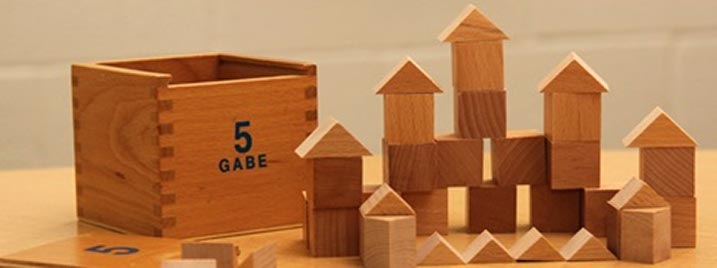
Of course, they all know of the Kindergarten, but not of its founder, Friedrich Froebel. And, unfortunately, what occurs in Kindergartens today all over the world has little resemblance to Froebel’s beliefs and ideas about the development and education of young children.
A good way to begin to understand Froebel’s philosophy is to define the word, Kindergarten. Kindergarten literally means Children’s Garden, which covers Froebel’s concept of “a place for children” as well as his beliefs about child growth, development, and learning (Elkind, 2015). He believed that the best place for young children is a place where the child’s nature can be developed and nurtured. And he believed that learning occurs best through play, exploration, creativity, and educating the whole child through music, singing, dance, art, drama, movement, and the use of the outdoors (Elkind, 2015). Froebel developed 10 gifts (educational materials) and 10 occupations (educational activities) to support children’s play and learning. (Froebel’s original Kindergarten covered the years from infancy to entrance into formal education. Here I use the term to cover the traditional early childhood years: birth to age eight).
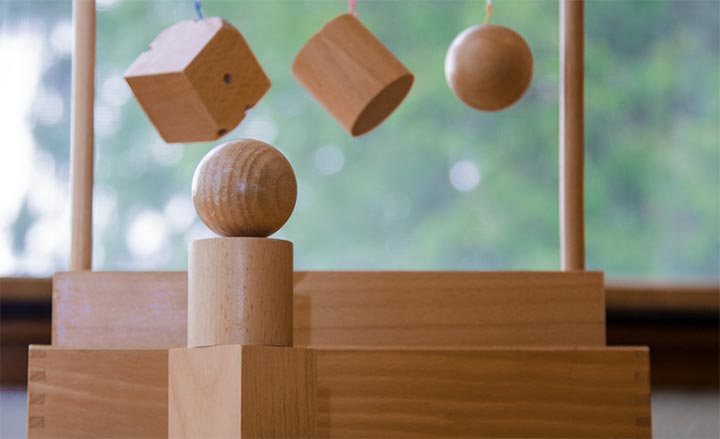
Froebel developed his 10 "gifts" to support learning through play with simple materials.
In today’s educational climate of pushed down academics, a focus on literature, science, technology and maths, curricula driven by standards and accountability, and a view of the early years simply as the first rung of the education ladder, now is an opportune time to familiarise ourselves with Froebel’s original ideas, and to use them to challenge inappropriate practices used with our youngest children. Some of Froebel’s critical concepts are:
Use of the outdoors
Froebel was a huge believer in using the outdoor environment with children. The outdoors, according to Froebel, gives children the freedom to explore, learn, and enjoy the natural environment; to him the outdoors was a critical learning environment. Today there is a renewed interest in using the outdoors with young children, which must be encouraged and supported – and should be available to all children.
Importance of hands-on learning
Far more important than Froebel’s specific gifts and occupations is his deep understanding that young children learn best through hands-on learning – the manipulation of objects and the engagement in concrete activities. As Bruner has suggested, children must first engage in concrete experiences with the real world before entering into symbolic (i.e. writing and numbers) learning (Bruner, 1960). Further, extensive hands-on activities manipulating a variety of materials with different sizes, weights and textures stimulate a vast array of essential new brain synapses.
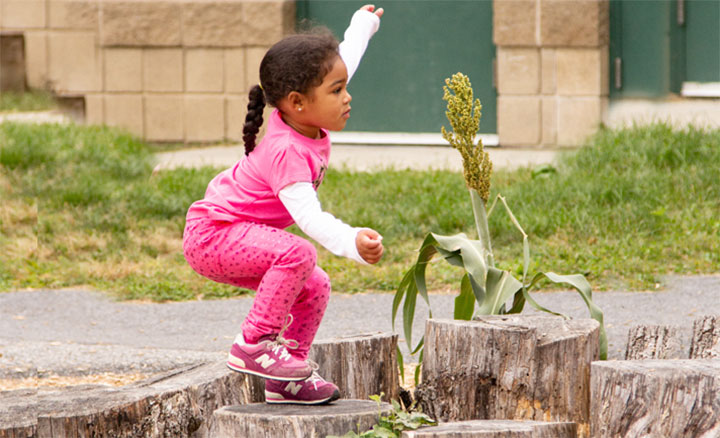
Outdoor play gives children the freedom to explore the natural environment.
Use of multiple intelligences
Long before Howard Gardner articulated the concept of multiple learning styles (intelligences), Froebel encouraged dance, singing, kinaesthetic activities, art and drama through his circle games, songs, and use of the gifts and occupations. Today there is an increased understanding of the importance of multiple learning approaches for healthy brain development in young children, and also the reality that not all children are logical and linguistic learners. This view enables all children to be successful, regardless of how they learn. Of equal importance, it underscores that many young children need to move as they learn, and are not necessarily deficient or delayed.
View of early childhood as a unique learning period separate from formal education
Maybe this was, and is, Froebel’s most revolutionary idea: he saw early childhood education as an educational level in its own right, one that should be available to all children. He did not believe the early years should be a downward extension of formal content, behaviours, and learning expectations, and he viewed this period as a unique opportunity for children to grow, develop, and learn. He also saw the early childhood period as complex, rich, and challenging (Elkind, 2015). This, of course, is the antithesis of today’s standards and accountability approach to the early childhood period.
Nurturing individual growth and development
Froebel’s idea of a children’s garden means that children should be nurtured like flowers, and be allowed to develop and grow as unique individuals with support and encouragement by teachers, but not forced to follow the same predetermined standard course of development and learning. In today’s world of accountability, the downward push of academics and often a too-eager-need to place children who struggle into special education, this is a very important view of the early years. As I tell my students, Froebel did not believe in Miracle Grow!
Importance of the family
Froebel was one of the first educators to value working with parents (mothers). Today, there is general agreement that parents (and other significant adults in the home) are the child’s “first teachers”. We need to reinvest in this critical belief, in our current culture where professional educational organisations appear to be usurping the rights and wishes of parents, especially regarding important issues such as gender and racial identity development, and important early childhood curricular content (NAEYC, 2019).
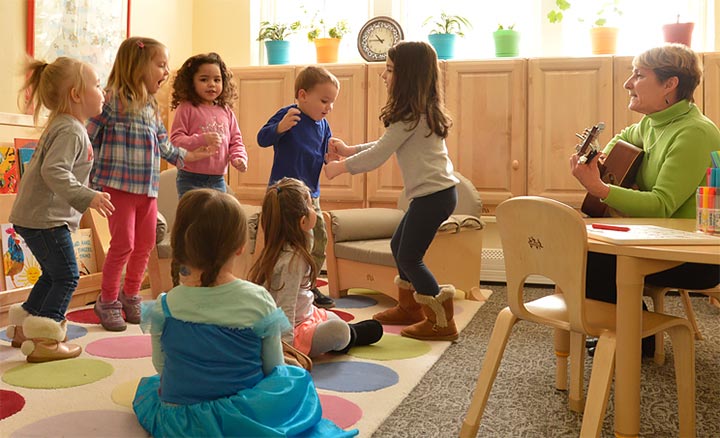
Froebel encouraged the use of dancing, singing, and drama, recognising that children learn through movement.
The value of play
In his seminal book, The Education of Man, Froebel writes that “thinking and doing through play, learning, and work are the proper bases for a fully active, conscious and happy life for the individual and society” (Weston, 1998, p.13). He believed play prepares the child for life. Clearly play must be the fundamental basis of any Froebel early childhood program, and, as our formal education system becomes more focused on academics, it is critical that our early childhood programs focus on play – all forms of play, including constructive, physical, and social play (Wardle, 2018).
The importance of creativity
Froebel believed that creativity is a fundamental aspect of nature that enables children to integrate the individual self with the greater social, cultural and physical world, and therefore children should be encouraged to create freely and spontaneously. He felt that nurturing the creative side of the child helped the child resist the negative influences from society. In many of today’s early childhood programs, creative activities are viewed as extras (specials), and children who struggle academically and behaviourally are often denied access to them (Wardle, 2018).
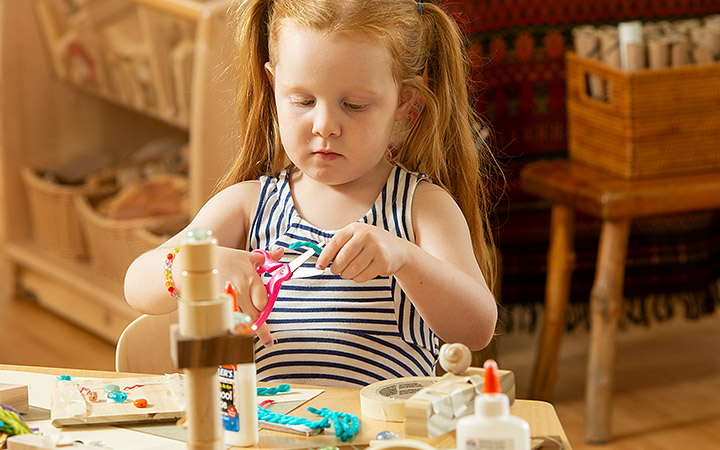
Children should be encouraged to create freely and spontaneously.
An understanding of children who struggle in school
Froebel disliked school, struggled to learn to read, and challenged authority. His belief in the educational value of outdoor learning, nature, and a whole child approach come partly from his own struggles. This is a powerful message for our current temptation to see young children who struggle academically and behaviourally as problems that need to be fixed though intervention, rather than changing inappropriate academic and behavioural expectations for young children. When children struggled, Froebel challenged the educational process, and not the child (Elkind, 2015). Innovative educators must be encouraged to challenge current beliefs and try new and potentially radical solutions to help our students, particularly those who struggle (Wardle, 2019).
The need to challenge educational orthodoxy
As a child, and later an educator, Froebel was a rebel. In fact, in 1851 the Prussian government closed all the Kindergartens in the country. According to Weston (1998), this was because Froebel’s philosophy challenged the state’s ability to control and manipulate its citizens. Today rigid orthodoxy – through Head Start regulations, state and local school district mandates, state learning standards, and the need to “align” early childhood curricula and instruction with school content and skills – control our programs. Many of these requirements directly contradict what we know about how young children develop and learn – damaging the learning of many young children (Wardle, 2018). A true educational reformer challenges the status quo and the accepted educational orthodoxy.
Conclusion
Kindergarten, of course, is a well-known education program, but Froebel, the father of the Kindergarten is hardly known at all. Knowledge of the basic philosophy behind the Kindergarten is totally lacking. In today’s reality of early childhood standards, pushed-down academic curricula, accountability, and the temptation to try to fix students who struggle, it is timely for our field to fully understand the pedagogical foundation of the Kindergarten, and to reintroduce these important concepts into our programs, for the good of our students and families.
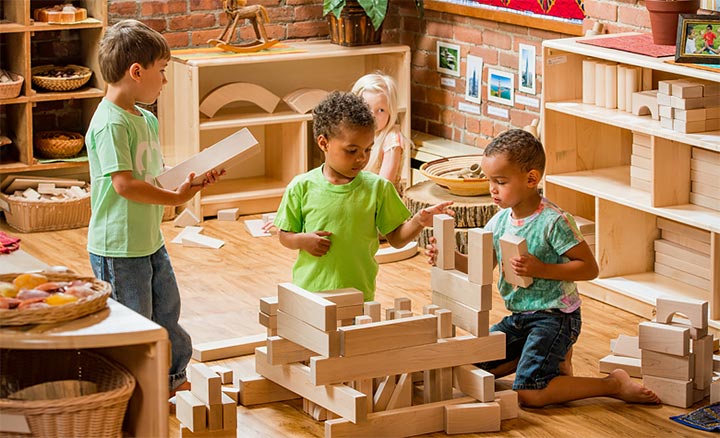
Innovative educators must challenge current practices and try new and potentially radical solutions to help all children succeed.
References
Bruner, J. (1960). The process of education. Cambridge, MA: Harvard University Press.
Elkind, D. (2015). Giants in the nursery. A biographical history of developmentally appropriate practice. St. Paul, MN: Redleaf Press.
NAEYC (2019). Advancing equity in early childhood education: Position statement. Washington, DC: Author.
Wardle, F. (2018). Oh Boy! Strategies for teaching boys in early childhood. Lincoln, NE: Exchange Press.
Wardle, F. (2019). Challenging the status quo: Guerrilla teaching tactics. Exchange Magazine, 41(6), 70-73.
Weston, P. (1998). Friedrich Froebel: His life, times, and significance. London: Roehampton Institute.

